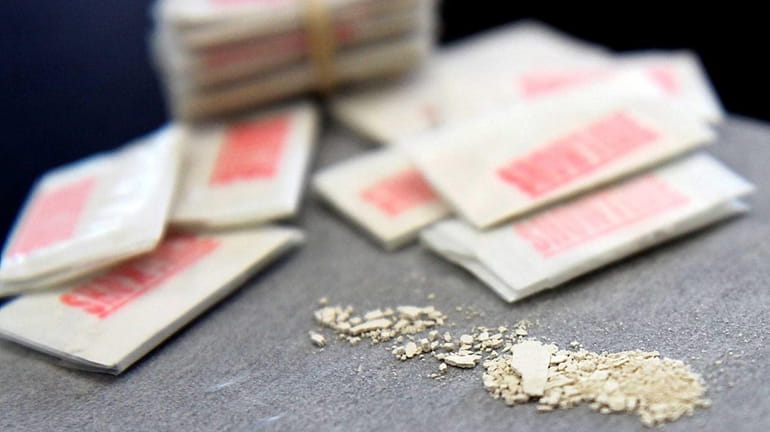Cooper: Require all to get drug education

Despite love, rehabs, support, tough love, jail, and the loss of his wife, my son would not -- could not -- stop. Powerless to help him, I focused instead on the field of addiction. Credit: Patrick E. McCarthy
'Heroin. I am using heroin."
I heard that admission from my 17-year-old son nearly two decades ago.
He is 36 now -- and surprisingly still alive. Many opiate addicts like him die before age 30. His wife died at 28 of an overdose, nine months after their wedding.
Despite love, rehabs, support, tough love, jail, and the loss of his wife, my son would not -- could not -- stop. Powerless to help him, I focused instead on the field of addiction.
As an addiction counselor at an acute care hospital in Manhattan, I spoke to patients as they lay suffering from gastritis, pancreatitis, broken bones, heart and kidney failure, lung disease, and HIV/AIDS.
I frequently found the underlying issue to be addiction -- alcohol, heroin, crystal meth, pills, crack, cocaine, even spray cleaner for computers. As I tried to help those patients, and now as I work with families and addicts, I find that society too often views the addicted as outcasts -- deadbeats who "brings this on themselves."
Philip Seymour Hoffman, the award-winning actor who died last week of an apparent heroin overdose, was not a deadbeat. And neither is my son -- who is doing very well thanks to his maturity and the structure he has in his life.
With the knowledge that comes from treating addiction and the personal angst I suffered until my son became sober, I learned that prevention is key, making sure the door to the first use is never opened. On the other side of the door, not a day will pass without fear and struggle.
When I speak to audiences about addiction, at times I sense the collective thought of some who think "not-my-kid." That's shortsighted: Addiction has touched scores of families across our country regardless of education, race, gender or economic status.
Mandatory education -- in schools, businesses, churches or health care facilities -- is paramount. It would raise awareness, create understanding and shed light on the shame of addiction.
Galen Morgan Cooper, the author of "A Turmoil Called Home: My Family's Journey into the Hell of Addiction," is a psychologist who specializes in addiction.
